About Rosecrance Marlowe Recovery House
Located in Rockford, Illinois on the banks of the Rock River, Rosecrance Marlowe House is a sober living home for adolescents aged 16 to 19 who have previously completed a substance use treatment program. Licensed by the state of Illinois and accredited by the Joint Commission, they are also a member of the National Association of Addiction Treatment Providers (NAATP). Their goal is to help young people create healthy routines in a structured environment so they can more easily transition back into the community.
Variety of Treatment Modalities
In addition to individual and group therapy, they offer medication assisted treatment (MAT) with Suboxone, Sublocade, Vivitrol, Campral, and Antabuse. Treatment modalities include cognitive behavioral therapy (CBT), dialectical behavioral therapy (DBT), and motivational interviewing. EMDR and transcranial magnetic stimulation (TMS) are also provided for treatment of co-occurring mental health disorders. With 24 hour support, clients attend daily 12 step meetings and participate in therapeutic sober recreational activities.
Building Independence for Tomorrow’s Adults
In addition to addiction treatment this program helps teenagers prepare for adulthood. There are higher education and vocational opportunities, nutrition and fitness classes, and help with managing finances. With peer support, adolescents can learn positive interpersonal and coping skills. Relapse prevention training and discharge planning are provided too.
Rehab in The Forest City
Known as “The Forest City,” Rockford is the state’s most populous city outside of the Chicago metropolitan area. Enjoy nature in an urban setting at the Anderson Japanese Gardens, or spend the day in the eight separate gardens that make up the Klehm Arboretum. Museum fans can explore the Rockford Art Museum or the Burpee Museum of Natural History. If it’s a unique shopping experience you’re looking for, stop by the more than 15 shops in the Main Street Antique Mall. And don’t forget to take a trip down the Rock River in the famous Forest City Queen Riverboat.
Latest Reviews
Rehab Score
Gallery
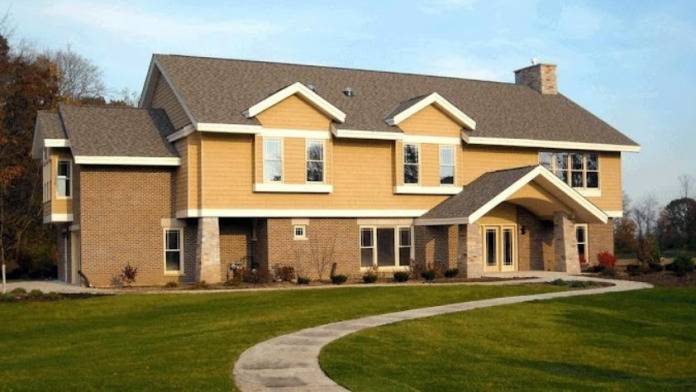
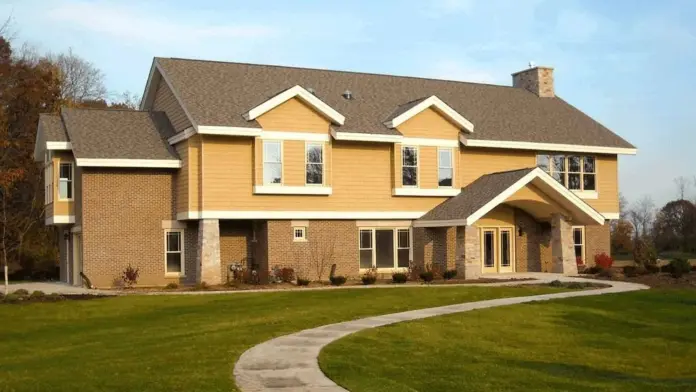
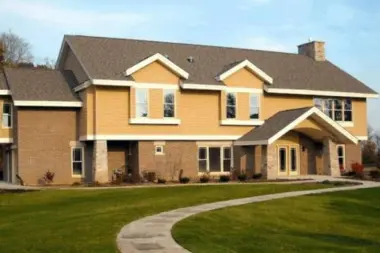

Accepted Insurance







Other Forms of Payment
Medicaid is a state based program that helps lower-income individuals and families pay for healthcare. Medicaid covers addiction treatment so those enrolled can use their coverage to pay for rehab. When a program accepts Medicaid the client often pays very little or nothing out of their own pocket.
Private insurance refers to any kind of healthcare coverage that isn't from the state or federal government. This includes individual and family plans offered by an employer or purchased from the Insurance Marketplace. Every plan will have different requirements and out of pocket costs so be sure to get the full details before you start treatment.
Self-pay involves paying for treatment out of your own pocket. You can use savings or credit, get a personal loan, or receive help from family and friends to fund your treatment. If you don't have insurance or your insurance plan doesn't cover a specific program, self-pay can help ensure you still get the care you need.
Financial aid can take many forms. Centers may have grants or scholarships available to clients who meet eligibility requirements. Programs that receive SAMHSA grants may have financial aid available for those who need treatment as well. Grants and scholarships can help you pai for treatment without having to repay.
Private insurance refers to any kind of healthcare coverage that isn't from the state or federal government. This includes individual and family plans offered by an employer or purchased from the Insurance Marketplace. Every plan will have different requirements and out of pocket costs so be sure to get the full details before you start treatment.
Medicare is a federal program that provides health insurance for those 65 and older. It also serves people under 65 with chronic and disabling health challenges. To use Medicare for addiction treatment you need to find a program that accepts Medicare and is in network with your plan. Out of pocket costs and preauthorization requirements vary, so always check with your provider.
Sliding scale payments are based on a client's income and family size. The goal is to make treatment affordable to everyone. By taking these factors into account, addiction recovery care providers help ensure that your treatment does not become a financial burden to you or your family, eliminating one barrier to care.
Military members, veterans, and eligible dependents have access to specific insurance programs that help them get the care they need. TRICARE and VA insurance can help you access low cost or no cost addiction and mental health treatment. Programs that accept military insurance often have targeted treatment focused on the unique challenges military members, veterans, and their families face.
Addiction Treatments
Levels of Care
Drug and alcohol addiction often takes a heavy toll on one's body. Over time, a physical dependence can develop, meaning the body physiologically needs the substance to function. Detox is the process of removing drugs and/or alcohol from the body, a process that can be lethal if mismanaged. Medical detox is done by licensed medical professionals who monitor vital signs and keep you safe, healthy, and as comfortable as possible as you go through detox and withdrawal.
Rosecrance has a long-term residential recovery program for teens through its recovery homes. The program is designed to develop independent living skills and provide ongoing support, safety and counseling in a drug-free environment for adolescents who have completed a primary treatment program. Through this gender-specific program, teens learn to overcome barriers that hinder them from lasting recovery. Services focus on developing the skills and personal characteristics needed to live independently in the community and/or effectively reintegrate with families or caregivers.
Sober Living Houses (SLHs), aka sober homes or halfway houses, are safe, substance-free, supportive living facilities for those recovering from substance abuse. Ideal for those who've just been through inpatient or outpatient treatment, SLHs are supervised environments with rules that support sobriety, such as curfews, shared chores, and therapeutic meetings. Residents are also often trained on life skills and coping skills to make it easier to transition into society. SLHs also provide a strong sense of community that can lead to the kind of deep and lasting connections with other sober individuals that supports a new, healthy lifestyle.
12-step programs are addiction recovery models based on Alcoholics Anonymous (AA). A number of substance abuse programs (including some drug and alcohol rehab centers) use the 12 steps as a basis for treatment. Beginning steps involve admitting powerlessness over the addiction and creating a spiritual basis for recovery. Middle steps including making direct amends to those who've been hurt by the addiction, and the final step is to assist others in addiction recovery in the same way. 12-Step offshoots including Narcotics Anonymous (NA), Cocaine Anonymous (CA), Dual Recovery Anonymous (DRA), Sex and Love Addicts Anonymous (SLAA) and Gamblers Anonymous (GA).
Completing a drug or alcohol rehab program shouldn't spell the end of substance abuse treatment. Aftercare involves making a sustainable plan for recovery, including ongoing support. This can include sober living arrangements like halfway houses, career counseling, and setting a patient up with community programs like Alcoholics Anonymous (AA) or Narcotics Anonymous (NA).
Treatments
The goal of treatment for alcoholism is abstinence. Those with poor social support, poor motivation, or psychiatric disorders tend to relapse within a few years of treatment. For these people, success is measured by longer periods of abstinence, reduced use of alcohol, better health, and improved social functioning. Recovery and Maintenance are usually based on 12 step programs and AA meetings.
Drug rehab in Illinois is designed to help people recover from addiction to a number of substances. The length of each program and its intensity tend to vary, and the plan of care is based on your individual needs.
Opioid rehabs specialize in supporting those recovering from opioid addiction. They treat those suffering from addiction to illegal opioids like heroin, as well as prescription drugs like oxycodone. These centers typically combine both physical as well as mental and emotional support to help stop addiction. Physical support often includes medical detox and subsequent medical support (including medication), and mental support includes in-depth therapy to address the underlying causes of addiction.
Substance rehabs focus on helping individuals recover from substance abuse, including alcohol and drug addiction (both illegal and prescription drugs). They often include the opportunity to engage in both individual as well as group therapy.
Dual-diagnosis addiction treatment in Illinois focuses on integrated care for individuals with co-occurring substance use disorders and mental health conditions. These specialized rehab programs include detox, medication-assisted treatment, residential drug and alcohol rehab, and outpatient programs. Treatment incorporates a combination of trauma-informed and evidence-based therapies — like cognitive behavioral therapy, dialectical behavioral therapy, and motivational interviewing— support groups, and skills training to holistically address addiction and co-occurring disorders at the same time, enhancing your mental, physical, and emotional health.
Drug rehabs often provide treatment for people seeking help for both mental health and substance abuse. The programs are usually offered on an inpatient or outpatient basis. Each personalized treatment plan includes a number of different mental health therapies and services, like cognitive-behavioral therapy (CBT), experiential therapies (equine and animal therapy, outdoor therapy groups, and individual / group counseling sessions designed to simultaneously address both mental health and substance abuse. Standard treatment modalities include relapse prevention education and emotional coping skills training.
Programs
Teen programs are designed to address the unique pressures teens face, pressures that can drive them to experiment with dangerous, addictive substances. They need programs that meet them exactly where they are and give them tools for long-term recovery. Therapy can help teenagers understand and work through underlying issues so they can reclaim the life ahead of them.
Adult rehab programs include therapies tailored to each client's specific needs, goals, and recovery progress. They are tailored to the specific challenges adult clients may face, including family and work pressures and commitments. From inpatient and residential treatment to various levels of outpatient services, there are many options available. Some facilities also help adults work through co-occurring conditions, like anxiety, that can accompany addiction.
Clinical Services
Cognitive Behavioral Therapy (CBT) is a therapy modality that focuses on the relationship between one's thoughts, feelings, and behaviors. It is used to establish and allow for healthy responses to thoughts and feelings (instead of unhealthy responses, like using drugs or alcohol). CBT has been proven effective for recovering addicts of all kinds, and is used to strengthen a patient's own self-awareness and ability to self-regulate. CBT allows individuals to monitor their own emotional state, become more adept at communicating with others, and manage stress without needing to engage in substance abuse.
Dialectical Behavior Therapy (DBT) is a modified form of Cognitive Behavioral Therapy (CBT), a treatment designed to help people understand and ultimately affect the relationship between their thoughts, feelings, and behaviors. DBT is often used for individuals who struggle with self-harm behaviors, such as self-mutilation (cutting) and suicidal thoughts, urges, or attempts. It has been proven clinically effective for those who struggle with out-of-control emotions and mental health illnesses like Borderline Personality Disorder.
Experiential therapy is a form of therapy in which clients are encouraged to surface and work through subconscious issues by engaging in real-time experiences. Experiential therapy departs from traditional talk therapy by involving the body, and having clients engage in activities, movements, and physical and emotional expression. This can involve role-play or using props (which can include other people). Experiential therapy can help people process trauma, memories, and emotion quickly, deeply, and in a lasting fashion, leading to substantial and impactful healing.
Research clearly demonstrates that recovery is far more successful and sustainable when loved ones like family members participate in rehab and substance abuse treatment. Genetic factors may be at play when it comes to drug and alcohol addiction, as well as mental health issues. Family dynamics often play a critical role in addiction triggers, and if properly educated, family members can be a strong source of support when it comes to rehabilitation.
Group therapy is any therapeutic work that happens in a group (not one-on-one). There are a number of different group therapy modalities, including support groups, experiential therapy, psycho-education, and more. Group therapy involves treatment as well as processing interaction between group members.
In individual therapy, a patient meets one-on-one with a trained psychologist or counselor. Therapy is a pivotal part of effective substance abuse treatment, as it often covers root causes of addiction, including challenges faced by the patient in their social, family, and work/school life.
Life skills trainings involve all the skills a person must have in order to function successfully in the world. These include time management, career guidance, money management, and effective communication. Truly successful addiction recovery is based on the ability to not only live substance-free, but to thrive. Life skills teaches the practical necessities of functioning in society, which sets clients up for success in life, and therefore sobriety.
During couples therapy in Illinois, you may work on a variety of relationship challenges. Couples therapy can address topics such as finances, children, health, addiction, intimacy, external stressors, and family relationships. You'll develop tools to address these types of challenges in healthy ways.
Motivational interviewing in Illinois is person centered and collaborative. This method allows the therapist to come alongside the client to address the issue of ambivalence toward change. By listening and reflecting, the therapist helps the client see the need for change and commit to making changes.
Amenities
-
Residential Setting
-
Private Setting
Staff & Accreditations
Staff
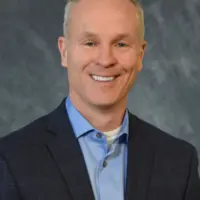
David Gomel, Ph.D
President & CEO

Anne Boccignone, MBA
Senior VP of Brand Strategy
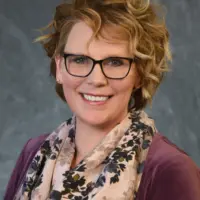
Carlene Cardosi, M.S.W, LCSW, CADC
Chief of Clinical Operations of Rosecrance Behavioral Health & Regional President of Rosecrance Illinois
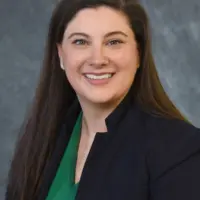
Kelly J. Epperson, J.D
Chief of Staff & General Counsel
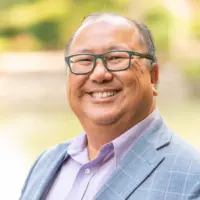
Raymond Garcia, M.D
Chief Medical Officer & Addictionologist
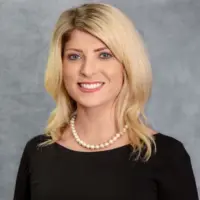
Kristin Hamblock, M.B.A, SHRM-SCP
Chief Human Resources Officer
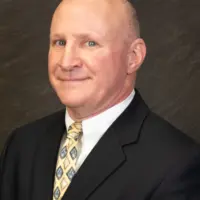
Michael Vick, M.B.A, CPA
Senior VP & CFO
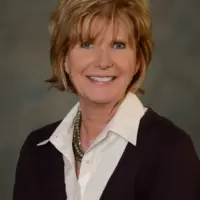
Janis Waddell, M.S., CSADC
Senior VP of Marketing & Chief Business Development Officer
Accreditations

The Joint Commission, formerly known as JCAHO, is a nonprofit organization that accredits rehab organizations and programs. Founded in 1951, the Joint Commision's mission is to improve the quality of patient care and demonstrating the quality of patient care.
Joint Commission Accreditation: Yes

The National Association of Addiction Treatment Providers (NAATP) is a professional association that represents organizations in the field of addiction services. Founded in 1978, NAATP's mission is to advance addiction services and ensure that high-quality addiction treatment is available and accessible.
NAATP Member: Yes
Member ID: 10783
Contact Information
1365 N University Dr
Rockford, IL 61107









